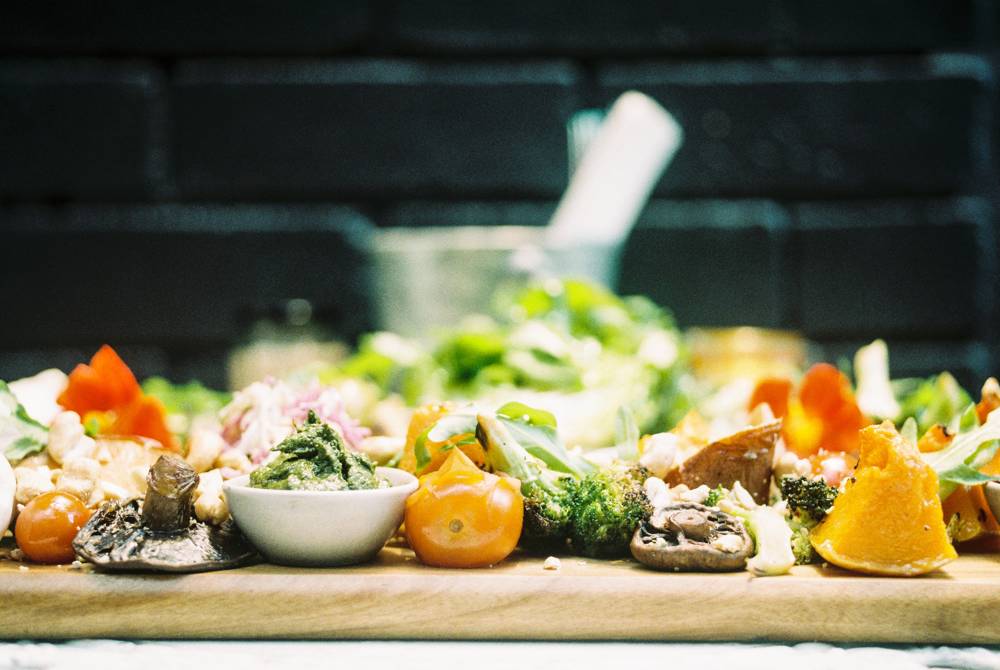The UK throws away 6.6 million tonnes of household food waste a year – almost three quarters is food we could have eaten. As we all wake up to global food waste issues and are faced with stats like this, the challenge to reduce food waste can seem unbeatable.
Food waste contributes to greenhouse gas emissions and wastes the water and other resources it takes to grow the food. While the average consumer is not a major environmental polluter in comparison to large corporations, finding ways to minimise food waste throughout the day will help to prevent you from contributing to the problem.
At a household level, there are a multitude of reasons for food being wasted, from bad shopping behaviours to preparing too much food, and even a lack of knowledge about the detrimental impacts of food waste.
So, what can you do to tackle this issue? In this guide, we’re sharing some tips on how you can reduce food waste.
1. Plan your meals
A little planning, prep will have a big impact on reducing your food waste. Before going shopping, think of the meals you want to prepare for the following week. Check what items you’ve got already, then make a list of items you still need. Once you are in the shop, stick to the list.
2. Grow your own
Growing your own herbs or vegetables isn’t as daunting as you think. Start small with basil or chillies if you like, and get a feel for it. There are plenty of things you can grow on your windowsill, or with only a small amount of space. Tomatoes don’t take up much room, or you can even grow strawberries in a hanging basket.
Growing and tending your own food tends to give you more of an appreciation of the time and effort farmers put into getting crops to your table – and it saves money.
3. Create some compost
There are clearly some bits of food that you can’t or don’t want to eat, such as some vegetable peelings, core, pips or stalks. Compositing is a fantastic way to keep food out of landfill – disposing of London’s food waste costs waste authorities over £50 million each year). You can invest in a countertop compost bin and a small scale composter.
4. Discover food waste apps
Food sharing apps are growing. These match people with food to give away to people who want it. Imagine you’ve got food leftover after a dinner party and are off on holiday and won’t get through everything.
Instead of throwing the food away, you can offer it on an app like Olio, and someone will collect it. Too Good To Go connects hungry diners with cafes and restaurants that have food leftover at the end of the day. They sell all their food, and you get great food at a discounted price. What’s more, not only do these apps reduce waste, they also help rebuild communities too.
Every day UK households throw away approximately:
20 million slices of bread
4.4 million potatoes
0.9 million bananas
1.2 million tomatoes
0.7 million oranges
0.8 million apples
2.7 million carrots
1 million onions
86,000 lettuces
3.1 illion glasses worth of milk
Source
5. Understand date labels
Many people throw away food that has reached its best before date, but this can lead to unnecessary waste. The only date you need to adhere to for safety reasons is the use-by date. You’ll see the use-by date on some meat products and ready-prepared salads.
The best before date is simply a guideline and is not related to safety. All it means is that after that date, the food may change colour, taste or texture, but it is perfectly safe to eat.
6. Revive food that’s on its way out
In many cases, you can revive or use food that is on its way out or starting to spoil. Those brown bananas? Peel them and put them in the freezer for smoothies. Wilted lettuce? Try putting it in a bowl of cold water until it gets crisp again.
7. Freeze it
When it comes to food waste, your freezer is a very effective tool. Not only can you freeze leftovers for another day, you can also freeze food that you might not use up in time to give them a new lease of life!
8. Track your trash
We recommended keeping a notebook in the kitchen and writing down items that go bad and are thrown away. You might be shocked after a few weeks when you see trends that you can start to address and correct. If that bunch of bananas is spoiling every week and getting thrown in the garbage by the end of the week, consider buying less when you shop, or slicing those bananas and freezing them for smoothies before they spoil.
9. Store your food properly
If food is not stored or handled properly, food spoilage can occur much faster. The easiest way to avoid food waste is to store your produce in ways that can preserve freshness.
If you have extra fruits and veggies, freeze or preserve them so you can savour them for weeks and months to come. If you only eat a small amount of bread, freeze the loaf when you get home from the store and take out a few slices a couple of hours before you need them.
Always store bananas, apples and tomatoes by themselves, since these items emit natural gases that can spoil any produce around them. Foods like broccoli, cauliflower and celery stalks should be eaten first. For items like berries, wait to wash them until right before you eat them to prevent mould.
10. Donate a plate
Donate what you know you won’t eat. You can take items like tinned foods to your nearest food bank.
For help removing your waste removal – from domestic household waste to WEEE or rubble, get in touch.
Feature image photo by simon peel on Unsplash.
